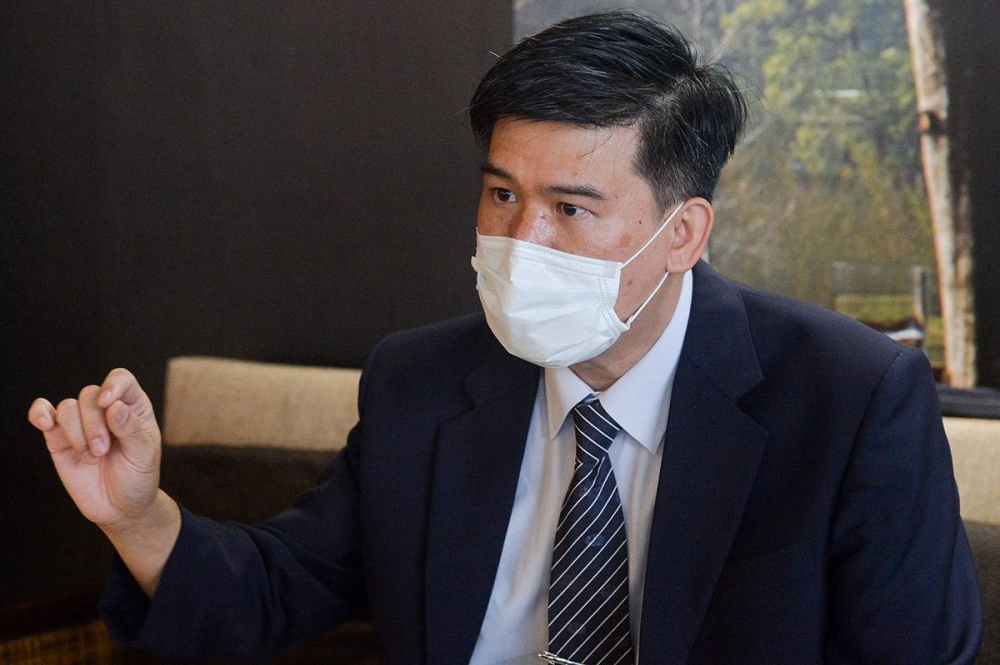KUALA LUMPUR, December 22 — Cervical cancer is a risk for women of all ages, so it's heartening that detection and treatment technology are rapidly improving.
A 2021 WHO study showed an 11 per cent increase in cervical cancer cases among Malaysian women.
It also revealed only four out of 10 women have been screened in the last five years.
Tzu Chi Medical Chief Gynaecologist Dr Hong Mun-Kun told Malay Mail that pap-smear tests every three years is the key to reducing the risk of cervical cancer for Malaysian women of all ages.
Cervical cancer begins when a human papillomavirus (HPV) infection develops inside a woman's vagina according to the Centre for Disease Control and Prevention (CDC).
According to Dr Hong, it takes 10 years for a HPV infection to turn into a cancer lesion, more than enough time for it to be detected by a pap smear test.
"Even if they are older women going through menopause I would still recommend getting tested,” Dr Hong said during a recent health talk at Tzu Chi Hall, Kepong.

"I have experienced many cases in Taiwan when cancer emerged because the patient had not tested in a long time.”
However, the invasive, painful, and stressful procedures of the pap-smear test have been a factor as to why most Malaysian women avoid screenings.
Not to mention the price of each test around RM40 to RM80 being too costly for B40 women.
University Malaya obstetrics and gynaecology consultant Prof Dr Woo Ying Ling told Malay Mail that better alternatives to the pap-smear test exist.
"To date, we have low rates of cervical screening in Malaysia, as this was previously required as part of obtaining a pap smear for cervical screening.
"However, with the recommendation of using HPV testing for cervical screening, women can have the option to self-test using a swab-like covid test.
"Hopefully, with self-testings affordability and convenience more women will come forward for cervical screening.”
Woo is also the co-founder of Programme ROSE (Removing Obstacles to Cervical Screening), an initiative to curb the intrusive nature of pap-smear tests.
Once cancer is detected and surgery is required, Dr Hong ensured that advancements in ‘minimally-invasive surgery’ should be enough to break stigmas against using robots in surgery.
A 2022 study from the International Journal of Obstetrics & Gynaecology said that the chances of side effects using keyhole surgery are far lower compared to conventional surgery.
"Using key-hole surgery with robotic equipment, we are able to make precise incisions that will remove the cancer without hurting the uterus.” Dr Hong explained.
"The idea of a ‘surgeons touch’ is scientifically proven to be wrong, in fact, robots have a lower chance of error compared to a human surgeon according to Tzu Chi Medical’s research.”
Fortunately, most Malaysian women have been accepting to key-hole surgery which is widely available in private and public hospitals according to Dr Woo.
"Unlike robotic surgery for the prostate, the benefits of robotic surgery in gynaecology, particularly in terms of costs, fully justify its widespread use,” she says.
"Women appreciate that it involves smaller scars and quicker recovery time.”
Dr Woo and Dr Hong hope that more awareness and education on the benefits of non-invasive surgery will reduce the fear attached to treatment against cervical cancer.
Malay Mail spoke to two women who shared their experiences using self-testing and undergoing non-invasive surgery.
Rebecca, a 21-year-old public relations trainee, performs screenings as she is wary about her cervical health.
"As I’m single and sexually active, I go for my screenings once or twice a year,” she says.
"The pap smear test can be a tedious, sometimes uncomfortable process, so I was open to any programmes to ease the burden of checkups and the risks of surgery.”
The fresh graduate was recently made aware of the ROSE programme co-founded by Dr Woo and decided to try it in January 2022.
Through self-sampling via brush tips, she has found it empowering to be able to check in on her own body without the help of another person or revealing private personal information.
"Checking your own body for diseases should not feel demeaning, thankfully more advancements in testing have made it easier for more women to be tested regularly,” Rebecca added.
Last year, Mira, a 62-year-old clerk found out she had cervical cancer after postponing screenings for several years, her doctor instructed her to undergo key-hole surgery.
"I was nervous about my doctor using machines to cut away tissue inside my own body,” Mira admitted.
Undergoing key-hole surgery turned out to be an eye-opener for her after years of fear of any sharp objects entering her private parts.
"The surgery was a success, I was relieved to find out that my body had no lingering pains and after consuming some painkiller medication I was able to be discharged later that night,” she said.
She hopes that more Malaysian women will no longer be afraid of treating cervical cancer due to the rise of less painful surgical procedures.






















